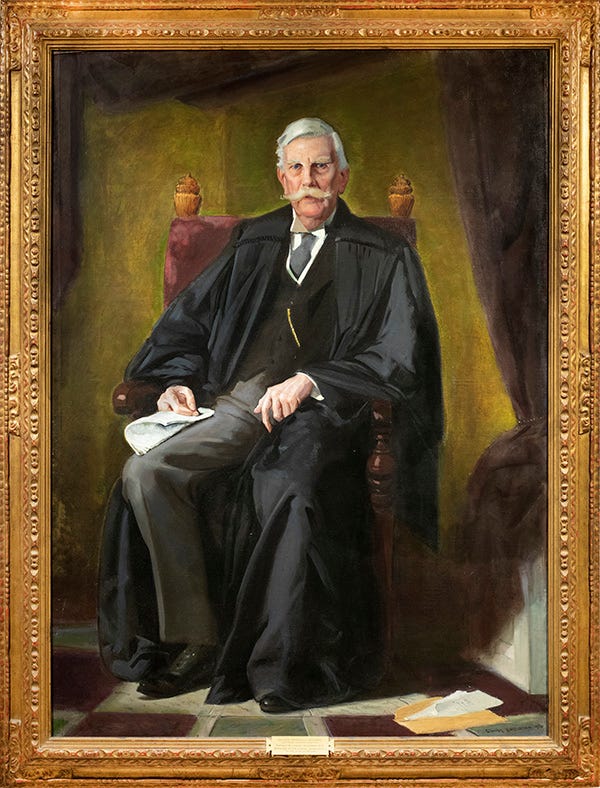Earlier this year, I went into a local vehicle mechanic’s shop to make an appointment for a state safety inspection for my car, the beautiful Elektra. The place was big enough to have a desk, complete with a young man sitting behind the desk to make the appointment. He was watching the TV when not answering phones, ordering parts, and making appointments. I’ve been there before, and it’s always the same with the TV there: FOX news.
I of course made a polite, subtly challenging comment about whatever was on the TV at that moment. The receptionist defended the commentators and told me, “No one keeps their agreements these days.” And then he proceeded to give me an appointment time. I got to wondering how reliable that appointment might be. So I didn’t go back, either, and I never rescheduled there, even though my name was in their book.
This is an official portrait of Oliver Wendell Holmes, Jr., a past Associate Justice of the United States Supreme Court. Justice Holmes also served as a brevet colonel in the Union Army in the United States Civil War, wounded several times. He served on the Court until retiring at age 90. His physician/poet/inventor father authored, “Old Ironsides”, an ode to USS Constitution, saving the old hero from a rusty doom.
But back to the value of a promise. Here is Justice Holmes on the value of the law as a predictive force in the lives of people, “. . . a legal duty so called is nothing but a prediction that if a man does or omits certain things he will be made to suffer in this or that way by judgment of the court;—and so of a legal right.”1 In other words, where the law is well-settled, people can rely on it for protection and for boundaries. They can expect that a contract will be performed, a promise kept, that a person’s word can bind future actions or else the court can enforce with penalty. Otherwise, as Justice Holmes learned during his war service, debts, including imaginary debts, are settled with bullets and swords.
Our garage desk man is right, and FOX news broke—or perpetuated—the story, Nobody keeps their agreements these days.
For example, our public radio station is fundraising right now because Congress went back on its promise to allot public radio money for this year. This is not about Congress cutting off next year. No. Congress is going back on its promises to public radio and SO many other people, for THIS year. I’m sure there are thousands of other examples of this erasure of a promise, the new law for those who have the power to make it.
I’m so sorry, Your Honor.
Congress breaks its word. The president, the butcher, the baker, the candlestick maker. Why should our garage desk worker keep his? He doesn’t expect me to come to my appointment, so I become part of the problem and I don’t show.
Justice Holmes would not recognize the Court today. Years of precedent are overturned by judicial reference to . . . nothing! The value of agreements, legal decisions which should inform the public of at least some small guidance for their affairs—GONE!!
We’re on our own.


